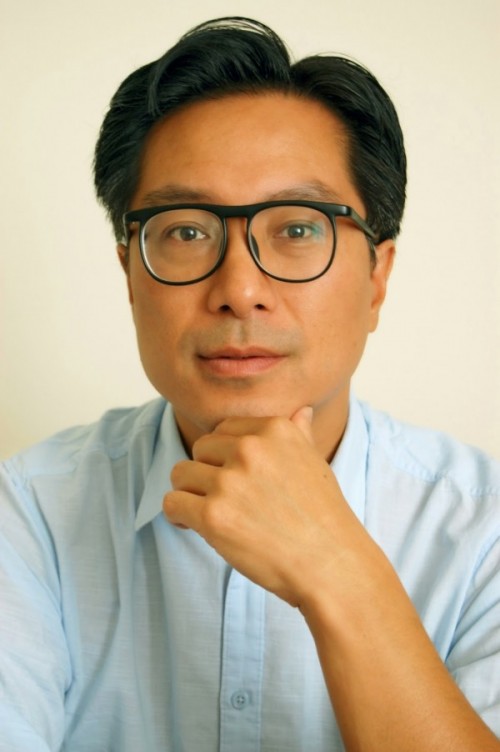
Authors explore war themes at literary gala
By Cheryl Minns, Arts Editor
From Alexander the Great to the war on terror, the War Stories Literary Gala covered a wide range of war-themed stories with four local authors—Annabel Lyon, J.J. Lee, Marilyn Norry, and Kathryn Para—at Anvil Centre Theatre’s inaugural cultural event on October 3.
Lyon read from her popular historical novels, The Golden Mean and The Sweet Girl, which follow a fictionalized account of Alexander the Great, Aristotle, and Aristotle’s daughter during war times in Greece.
“I never intended to write about war,” she said during the presentation.
She further elaborated that she chose not to write a large battle scene in The Golden Mean because she didn’t feel she had the right experience to capture such a scene properly. Instead the battle scene is described by what a character hears from his tent.
Lyon also explored the historical context of post-traumatic stress disorder (PTSD), such as discussing how it went through various names over the 20th century before it was formally defined as a medical condition. Through her research for The Golden Mean, she discovered that Alexander the Great likely suffered from PTSD based on his behaviour, but there was no definition or treatment for his condition at the time.
Norry, an actor, author, and playwright, spoke about women’s stories during wartime and how they are often downplayed compared to the men’s stories of being on the front lines.
To combat this, she created a website, mymothersstory.org, so that people could share their mothers’ stories in 2,000 words or less and have them preserved for future generations.
“We do not value the familiar,” Norry said, explaining that a mother’s life story is often so familiar to her family that the family members don’t see its significance.
She also spoke about Bernice Bernard, the mother in the famous photo “Wait for Me Daddy,” who is often ignored compared to the little boy, Warren “Whitey,” running to his soldier father, Jack. Norry argued that Bernard’s story and emotional state during the scene is just as important as Whitey’s or Jack’s but is unrecognized by society because she was “just the mother.”
Lee, a CBC Radio personality and author, gave the audience a treat by presenting a newly written story about his experience while visiting military training locations.
He described the virtual war game simulations the soldiers undergo as part of their military training to desensitize, train, and combat. He noted that these simulations are surprisingly similar to the violent video games that youth play, and questioned what kind of effect they could be having on players.
“War is always a game,” he said, explaining that war only works if there’s a strategy to it.
He also added that today’s desire for video games could stem from the fact that there is very little of the world that is left to explore and perhaps video games are the only new frontier.
Para, a Douglas College alumna and author, read from her premiere novel, Lucky. The book follows the fictional story of a freelance photojournalist who travels to Fallujah, Iraq in 2004 to photograph scenes of the war.
“I was looking for that story of our attraction to danger and extremes written from a woman’s point of view,” she said, noting that most of those stories were about men and were written by male authors. “If I couldn’t have it, I’d have to write it myself. So I did.”
On the morning of October 3, Para spoke to a classroom full of Douglas College students about her book, reading excerpts from Lucky and taking questions from the audience.
She sat down with the Other Press after her presentation and shared some insights on writing her first novel.
“Everyone who’s read the book really feels like they have some insight into that area and things that are going on,” she said, adding that it is a topical book given the current conditions in the Middle East.
“I think that people enjoy it because it has enough pace to keep the poetics from holding it down,” she said of the writing style. “When you go into a description that’s very poetic it tends to slow the pace of the story, so you have to use that judiciously.”
The novel begins with photojournalist Ani Lund recovering from having just been shoved out of a moving car in Fallujah and escaping from her kidnappers. Para said Lund’s kidnapping and captivity were inspired by a CBC Radio story she heard about a group of non-government workers who were kidnapped in the Middle East.
“One of them was on the radio talking about the ordeal and what it was like to be in that room and how they thought, ‘Could they escape? Should they escape? Should they wait? Was anyone coming for them?’” she said. “I think that’s a really interesting and important element to talk about. That inspired me.”
Para’s advice to novice writers is to write everything and keep writing no matter what.
“Don’t quit because it’s not the best story. Just keep writing because your stories get better,” she said. “The only way to learn to write is to write.”
